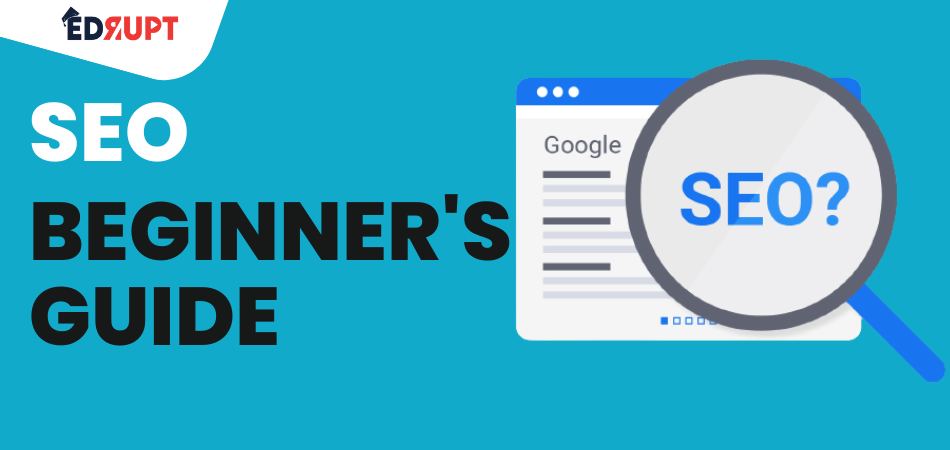Beginner’s Guide to SEO (Search Engine Optimization) Welcome to the Beginner’s Guide to SEO (Search Engine Optimization)! In today’s digital landscape, having a strong online presence is crucial for businesses and individuals alike. SEO is the practice of optimizing websites to improve their visibility in search engine results pages (SERPs), thus attracting more organic traffic. This comprehensive guide aims to provide beginners with a solid foundation in SEO fundamentals, techniques, and strategies. Whether you are a website owner, a content creator, or simply curious about SEO, this guide will equip you with the knowledge and tools to navigate the world of search engine optimization successfully. What is SEO? Definition of SEO SEO, or Search Engine Optimization, is the practice of improving a website’s visibility and ranking on search engine results pages (SERPs). It involves optimizing various aspects of a website to make it more appealing to search engines and ultimately drive more organic traffic. Why is SEO important? SEO is important because it helps your website get discovered by people searching for relevant information or products. When your website ranks higher on SERPs, it increases the chances of attracting clicks and visitors. Essentially, SEO helps you stand out in the vast sea of online content and gain a competitive edge. Importance of SEO for Beginners Benefits of SEO for websites SEO offers several benefits for websites, especially for beginners. It helps increase organic traffic, meaning visitors who find your site through search engines without paid advertising. More traffic translates to more potential customers or readers, which can result in higher conversions and revenue. Role of SEO in online visibility In today’s digital age, having an online presence is crucial for businesses and individuals alike. SEO plays a vital role in improving a website’s visibility on search engine result pages. When your site appears on the first page of search results, it becomes more visible to users searching for related keywords. This increased visibility can significantly impact organic traffic and brand exposure. Understanding Search Engine Algorithms Overview of search engine algorithms Search engine algorithms are complex systems used to determine the relevance and ranking of webpages on SERPs. While the exact algorithms are constantly evolving, their main goal is to provide users with the most relevant and high-quality results based on their search queries. Understanding how search engines work can help you optimize your website accordingly. Factors influencing search engine rankings Numerous factors influence search engine rankings. These include keywords, website structure and navigation, backlinks, user experience, site speed, mobile-friendliness, and the overall quality of content. It’s essential to consider these factors when optimizing your website to improve its chances of ranking higher on search engine result pages. On-Page SEO Techniques Importance of on-page optimization On-page optimization refers to optimizing individual web pages to improve their visibility and relevance for targeted keywords. It involves optimizing elements such as meta tags, headings, content, and URLs. On-page SEO is crucial because it helps search engines understand your webpage’s content and purpose, making it more likely to appear in relevant search results. Optimizing meta tags and headings Meta tags, including the title tag and meta description, provide brief descriptions of a webpage’s content to search engines. Optimizing these tags with relevant keywords and compelling information can improve click-through rates and overall visibility. Headings, such as H1 and H2 tags, also play a role in signaling the structure and relevance of your content to search engines. Creating quality and relevant content One of the most crucial aspects of on-page optimization is creating high-quality, relevant content. Search engines prioritize content that provides value and answers users’ queries. By producing well-written and informative content that aligns with targeted keywords, you can improve your website’s chances of ranking higher and attracting organic traffic. Remember, quality content is king! Off-Page SEO Strategies Introduction to off-page SEO When it comes to SEO, it’s not all about what happens on your website. Off-page SEO refers to the actions you take outside of your website to improve your search engine rankings. This includes building high-quality backlinks and leveraging the power of social media. Building high-quality backlinks Backlinks are like gold in the world of SEO. These are the links from other websites that point to your site. The more high-quality backlinks you have, the more authority and credibility search engines give to your website. Building backlinks involves reaching out to other website owners, creating valuable content, and fostering relationships in your industry. Social media and its impact on SEO Social media isn’t just for sharing cat videos and stalking your exes. It also plays a significant role in SEO. When your content gets shared on social media platforms, it increases its visibility and drives traffic back to your website. Social signals, such as likes, shares, and comments, also indicate to search engines that your content is valuable and worth ranking higher. Keyword Research and Optimization Understanding keywords and their importance Keywords are the foundation of SEO. They are the words and phrases people use when searching for information online. By understanding the keywords that are relevant to your business, you can optimize your website to appear in the search results when people search for those keywords. This increases your visibility and brings targeted traffic to your site. Conducting keyword research Keyword research involves finding the right keywords for your website. You want to identify keywords that have a good search volume, are relevant to your business, and have manageable competition. There are tools available, such as Google Keyword Planner, that can help you in this process. Implementing keywords effectively Once you have identified your target keywords, it’s essential to strategically place them throughout your website. This includes optimizing your page titles, meta descriptions, headings, and content. However, be careful not to overdo it. Keyword stuffing can do more harm than good and may even lead to penalties from search engines. Technical SEO Fundamentals Importance of technical SEO Technical SEO involves optimizing the technical aspects of your website to improve its visibility

